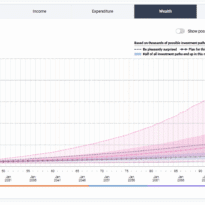UK equities have climbed to an all-time high amid growing speculation that Prime Minister Rishi Sunak will be ousted in the General Election, says Franklin Templeton.
According to Franklin Templeton’s senior ETF investment strategist Marcus Weyerer, after 14 years of Conservative rule, the recent results of local elections suggest the “country seems to be yearning for change”, with the Labour party maintaining a lead of around 20 points in the polls.
However, Weyerer believes an upcoming campaign and election output will have limited significance for the UK’s financial markets. Compared to the US, policy differences between the main parties remains moderate.
He said: “Labour leaders have said that there are no plans to hike income taxes. Conservatives are pushing for lower taxes, but economic realities dictate that any cuts would have to be marginal. Energy giants might face a more structured approach to windfall taxes, but in practice, Tory governments had implemented these levies on at least three occasions since the days of Margaret Thatcher. In summary, while there are obvious policy differences, their economic impact may play out at the margins.
“Most likely, markets have already at least partially priced in a Labour win. Either way, the United Kingdom is in dire need of economic growth.”
Weyerer said both Brexit and the pandemic have had a disproportionate impact on the country’s economic trajectory compared to its G7 peers. With the exception of Germany, the UK has put in the weakest performance among the G7 countries, while the US has seen economic growth of more than 8% since the pandemic. However, the International Monetary Fund predicts that the UK will grow closer to its long-run potential, at an annual rate of between 1.5% and 2%, and is expected to add a cumulative 8% to its GDP between 2025 and 2029, which would position it at the higher end of the G7 growth spectrum.
Core exposures to UK equities, however, are only partially at the mercy of domestic economic performance, according to Franklin Templeton. The FTSE UK RIC Capped Net Tax Index comprises large- and mid-cap stocks, including some of the top financial institutions, global players in consumer goods, and two of the world’s largest energy companies. Since 2020, it has outperformed the more domestically-oriented FTSE 250 Index by almost 25 percentage points but it has significantly lagged other large-cap indices, like the S&P 500 or the global FTSE Developed Index.
Wayerer believes that in times of the “Magnificent Overconcentration” of a handful of stocks and the IT sector, UK equities can offer an interesting complement to investor allocations. Besides the diversification angle, there is also a valuation argument. UK equities currently trade at a discount of more than 50% compared to US equities and currently offer a dividend yield of 3.8%.
Weyerer added: “With the market at fresh all-time highs, investor sentiment also appears positive, but far from euphoric. The country is just coming out of the toughest cost-of-living squeeze in generations, public finances remain stretched, and the housing market is only beginning to recover. The Bank of England has no clear path to lower interest rates yet, although expectations for a summer cut are ramping up.
“While profit-taking or election uncertainty might inject short-term volatility, we like the general setup for UK equities. A diversified exposure across sectors, a blend of global players and more local enterprises, coupled with an improving growth outlook and attractive valuations make for a compelling investment proposition, in our view.”
Main image: kate-krivanec-moW-dSe5CiU































